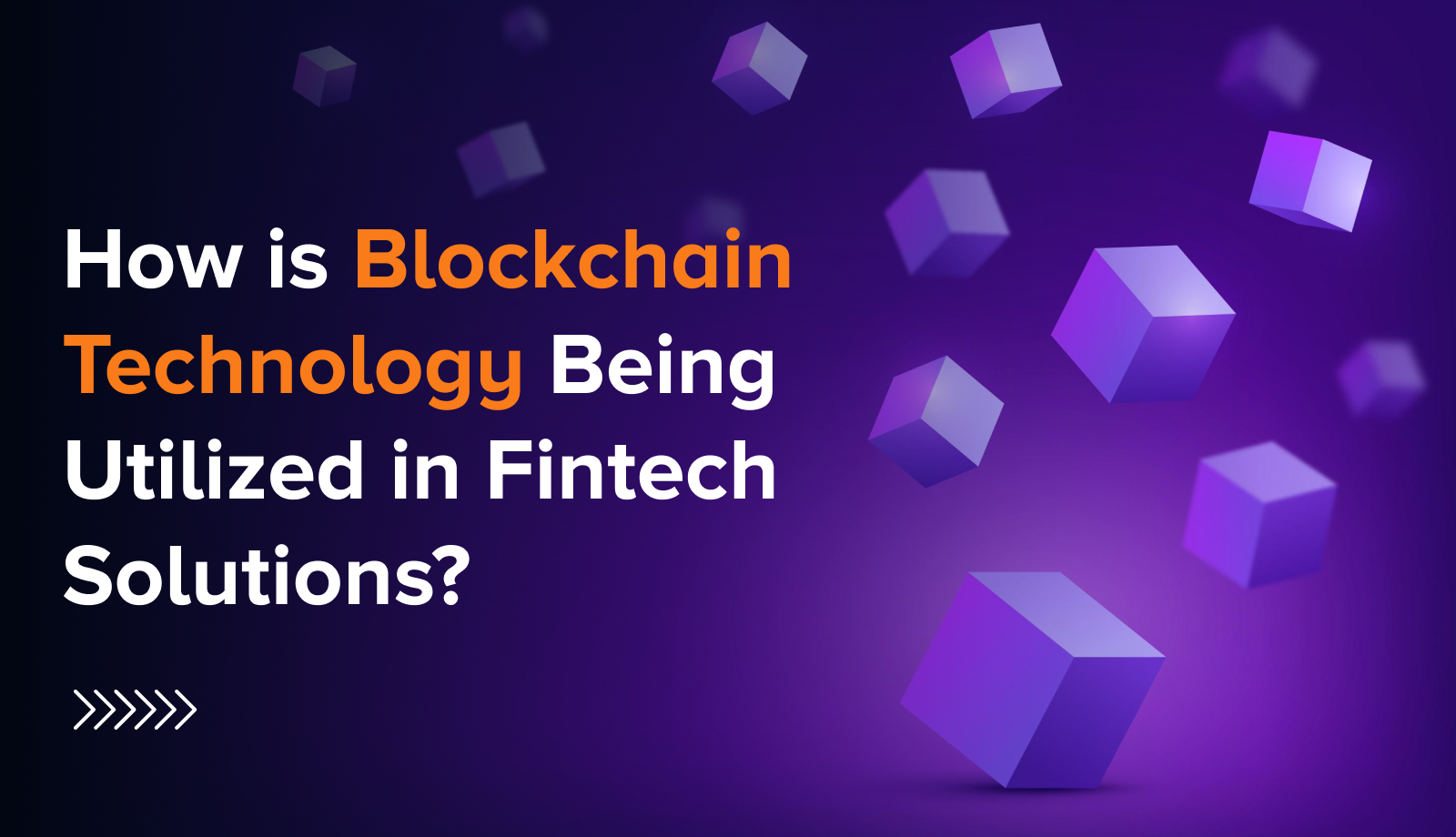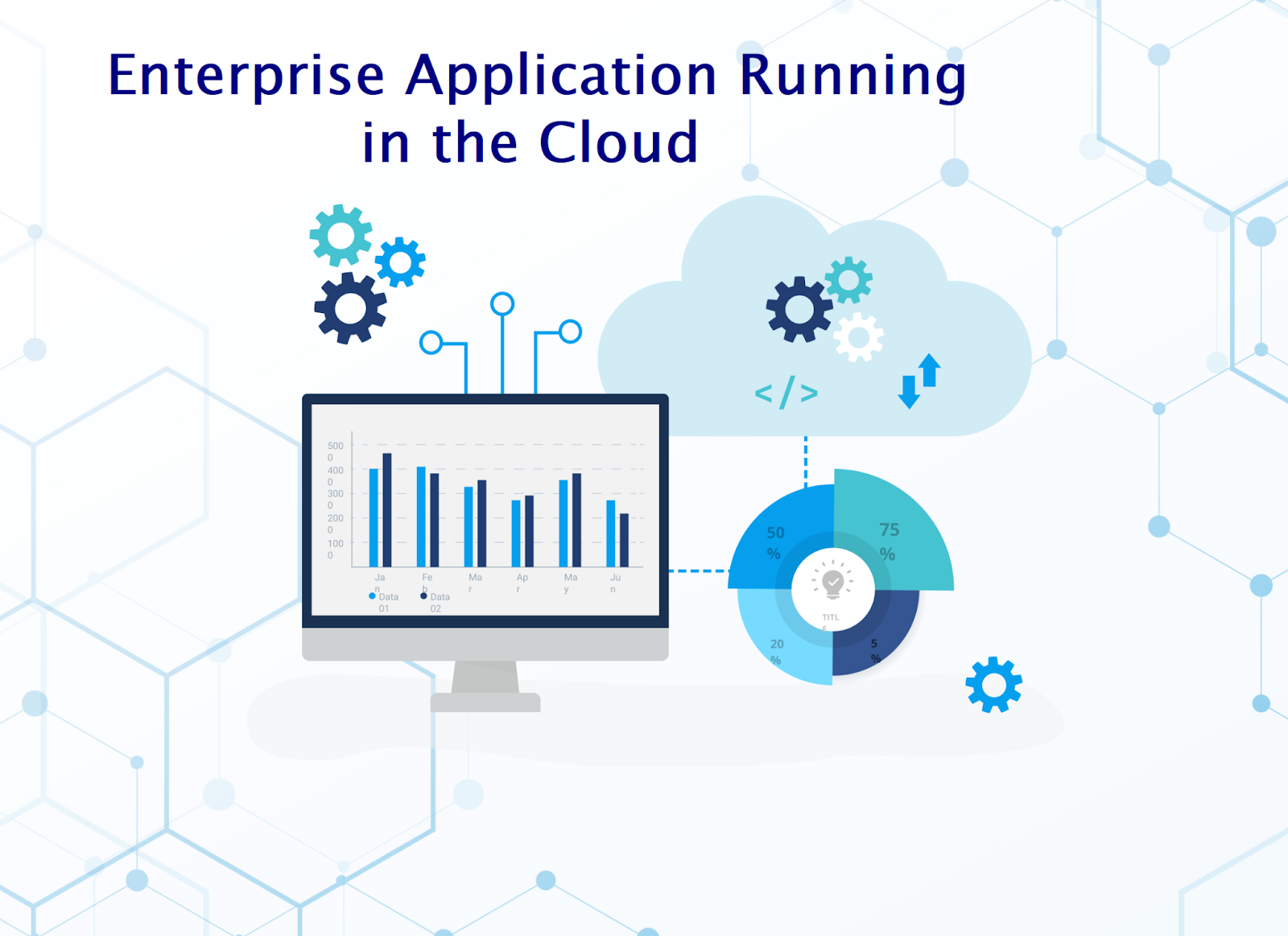
Keith Laurance
Sarasota, Sarasota
Keith Laurance
1 year ago
How is Blockchain Technology Being Utilized in Fintech Solutions?

Blockchain Technology has evolved drastically from 1991 to the Present. The popularity of blockchain keeps on growing, resulting in drawing the attention of diverse industries. Fintech is one of all, that is experiencing the transformative impact of blockchain technology. It helped the finance sector generate more revenue, improving the end-user experience and reducing risks in business operations.
According to statistics, the fintech blockchain market is expected to reach $36.04 bn by the end of 2028. But what exactly is blockchain technology and how is it used in finance and banking solutions for better results?
In this blog, we have covered all the answers to the doubt about how blockchain is helpful in the revolution of the fintech industry. So let’s get started.
What is Blockchain Technology in Fintech?
Blockchain technology is a data management system that allows information transfer within the business network. There are two ways in which the blockchain interacts with the fintech. Blockchain is an important part of all cryptocurrency operations. It is one of the key processing tools at the time of using Bitcoin or Ethereum to pay for something on the internet. All the fintech platforms that have cryptocurrency integrated have to interact with Blockchain.
On the other hand, blockchain technology has a decentralized and transparent nature which provides enhanced security, efficiency, and thrust in financial transactions as well. The technology has the potential to revolutionize various aspects of fintech such as smart contracts, verification identifying, payments, and remittances.
Ways Blockchain is Utilized in Fintech Industries
Fintech industries are updating day by day, and blockchain is one of the major technologies behind this. Let’s have a look what are the changes brought by the integration of this:
Enhancing Security
According to the latest data, approximately 33% of consumers become victims of identity theft. Since then, it become an issue for fintech and banking firms, and they are also required to implement know-your-client and anti-mobile laundering procedures following oversights. This means that they need a lot of work to do and that can slow the process eventually.
Thus, implementing the blockchain-based system can improve the process. The user has to manage and share the data only once and the secret code is given to them that they can use globally anytime. However, the identity provided to each is different so the security is also enhanced.
Reduced Transaction Costs
Multiple things have to be considered at the time of an online transaction such as applications or trading companies, intermediaries, and some transfer channels also that slow down the process and introduce some extra charges to it. And when we talk about international dealing it is even more. Many fintech software development companies are earning a huge amount of money out of this procedure.
So implementing the blockchain in this process decreases all the losses. It enables peer-to-peer transactions over the Internet, which lessens the intermediaries and their costs. Due to the decentralized system, it eliminates the delays in online payments.
Fast Credit Reports
Banking and financial institutions store transactional information of their users to analyze their monthly transactions. Now this can generate a credit report with the help of analyzing data. However, this data is not that secured as centralized servers are used for this and anyone can hack the server and get all the data.
Using the blockchain in the system can enhance security as it decentralizes the data and stores it in a separate place to protect the data from any fraud. Secondly, it has a robust security algorithm that can protect the data as needed to identify the verification protocol. And the most existing thing is that blockchain technology can audit the credit report and help the user get it at a much faster speed.
Recommended: Hire Mobile App Developers
Global Payment Options
The blockchain network is entirely Internet-based and does not require any other specific setup for operations. Due to digitalization, the user can access the data and can do transactions from anywhere all over the globe with just private keys and the account’s public.
The cross-border transaction is also very smooth with the help of the blockchain network as it is an internet-centric system which makes it flexible for global transactions.
Conclusion
Coming to the end, we know that blockchain technology use cases are revolutionizing the fintech industry and are not towards the end at any moment. The benefits of blockchain are clear as it removes the barriers of cost, speed, and many more factors of financial transfers. The security is one of the major factors which can also be enhanced with the help of the blockchain implementation.
To learn more about the topic or how to develop a fintech mobile app, contact the best ewallet app development company, Octal IT Solution, today and get detailed advice from our experts.
0 likes · 0 comments
Science and TechnologyKeith Laurance
1 year ago
Is It Good to Have an Enterprise Application Running in the Cloud?

Cloud computing has been evolving for years; it has become a part of everyday life, and its presence is getting stronger daily. Already in the previous year, it was utterly commonplace in the large corporate sector and among small and medium-sized enterprises. However, the evolution of the cloud raises several security and data management issues, so our customers often ask the enterprise mobility service providers if running a business application in the cloud is worth it.
Let's see one side of the scale first. The most significant advantage of cloud applications
- Faster development and deployment, as the cloud provider provides the infrastructural background
- flexible: expandable at any time
- easy to operate: easy to install and operate, no administrator required
- Cheap sustainability: you only have to pay for the amount of used space, which can be increased in direct proportion to the increase in the number of users
- More optimal use of resources: development and security issues are solved by the service provider, so you have more time and more framework to develop the product itself
There is a question of security on the other side of the balance sheet. Many people still need to be convinced about cloud applications and storage, although one of the primary responsibilities of cloud providers is to protect our data in addition to storage!
If you want to grow your business better and manage your data over the cloud, connect with our cloud computing service providers.
Cloud Providers Currently
Cloud providers have the "Big Three" - AWS connected to Amazon, Microsoft Azure, and Google Cloud. In addition, we also talk about our big favorite, which is based on the AWS infrastructure and provides extra services. This is Heroku, which is even less known, although several large international companies run their applications on it.
What is the same is that the range of services is similar in each of them, highlighting only the most important ones:
- Virtual machine (Unix or Windows-based)
- S3 storage (like AWS S3)
- Databases (which run in the cloud and not on your virtual machine)
- image analysis (Google Vision)
- App engine (which is like Heroku, with no virtual machine; you just deploy an app on it)
- Cloud functions (AWS Lambda): Stores and runs more minor fast-running program codes. This is how you can send an SMS to an SMS campaign.
- CDN: accelerated service of static files (images, HTML, CSS, JavaScript) linked to geo-location
- BIG Data functions
AWS
The Amazon Web Service was launched in 2006. Like all other platforms, Amazon.com charges for services based on usage, but usage metrics vary between services. In 2018, by the way, AWS accounted for half of Amazon's total revenue, which illustrates the size of the platform very well. Amazon has a fantastic amount of cash and can spend much more on its data centers and infrastructure than its competitors, making it a market leader. Today, Amazon dominates half of the world's public "cloud market."
Google Cloud
Just like a platform like AWS. His reputation is world-class, and so is the trust placed in him. You get quasi-the same features here under Amazon, as platforms usually copy each other: well-functioning, reliable system, mid-high solid price range.
In our experience, service providers differ most in prices. AWS is usually the most expensive, followed by Google and Azure.
Azure
With its 15% market share, Microsoft's product is the 2nd most significant player in the cloud market. Although it operates in 30 different regions of the world, it is present in more places than AWS or Google Cloud. It is a good choice for large companies, SMEs, and startups.
Like other systems, it supports any open-source technology. It is an ideal choice for a full-featured platform service (PaaS - Azure SQL Database) that is scalable vertically and horizontally, is usage-based, and provides operator and developer software access. But it is also a good choice if you only need an infrastructure service (IaaS - Azure SQL Server). In this case, the SQL server runs on a cloud-based virtual machine, which may be a better choice if you do not want to build a new cloud-based application but want to place some or all of your existing solutions in the cloud.
Heroku
It's our favorite. If you have to choose, we recommend it. As mentioned, more than the others, because Heroku is a service that leverages the resources of AWS and offers a CI + deployment interface.
Why will you love me too? Because it has fully automated build processes, there is no need for an administrator or DevOps, and it also solves security-related tasks as part of the service.
We can easily create multiple environments, and the fixes or functions between them can be armed with a few clicks.
In our experience, a business can protect itself from a lot of nervousness, security, and operational risks. Several large companies run their applications on this platform here, but it is hardly known in the USA.
Cloud Is the Present!
It is indisputable that companies and products that perfectly combine function and user experience are successful. In addition, it will become natural that all user data for a given business will be stored in the cloud; anyone at any endpoint can log in to their virtual desktop, where they will have access to the same thing as if they were sitting at their desk, in front of their work computer.
As artificial intelligence and complex data management evolve, there will be an increasing need for these external services.
There is an excellent future in the cloud. They offer faster, more straightforward, and more cost-effective solutions. Would you try it for your existing or new business application? Contact our iOS app development company with confidence!
0 likes · 0 comments
Science and TechnologyDo you want to manage your own group?


